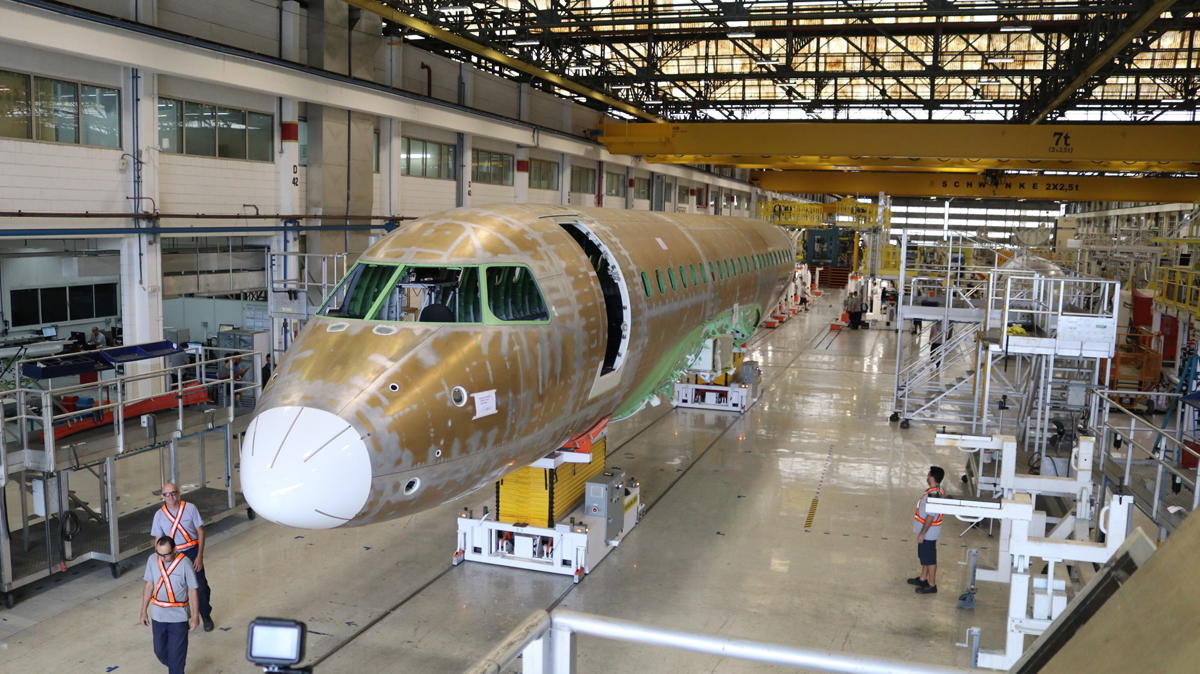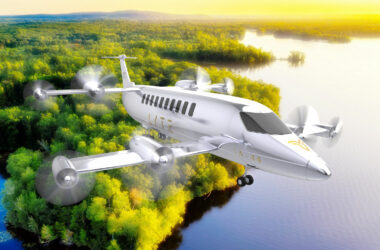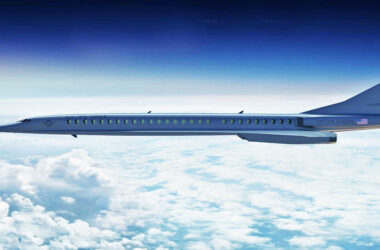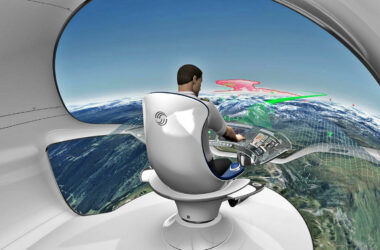Embraer and Pratt & Whitney performed the first stage of testing with the E195-E2 using 100% sustainable aviation fuel (SAF) in one of their PW1900G engines. Flight tests were performed from Vero Beach Regional Airport in Florida.
According to the Brazilian manufacturer, the SAF-fueled aircraft completed 70 minutes of flight tests and proved that the used GTF engines of the E2 family can use 100% sustainable fuel “without any compromise to safety or performance”. Currently, Embraer aircraft are certified to operate with a blended up to 50% with standard Jet A/A1 kerosene.
“The E2 is already the most efficient single aisle aircraft flying today, saving up to 25% CO2 emissions compared to previous generation aircraft. This reduction in emissions can be increased up to an impressive 85% with 100% SAF. Replacement of older aircraft by new generation products and scaling up SAF production are the two most effective commercial aviation actions can now take to achieve a significant reduction in emissions,” said Rodrigo Silva e Souza, Vice President of Strategy and Sustainability at Embraer Commercial Aviation.
“This test demonstrates that the E2 is ready for 100% SAF certification and operation once the industry finalizes standards.”
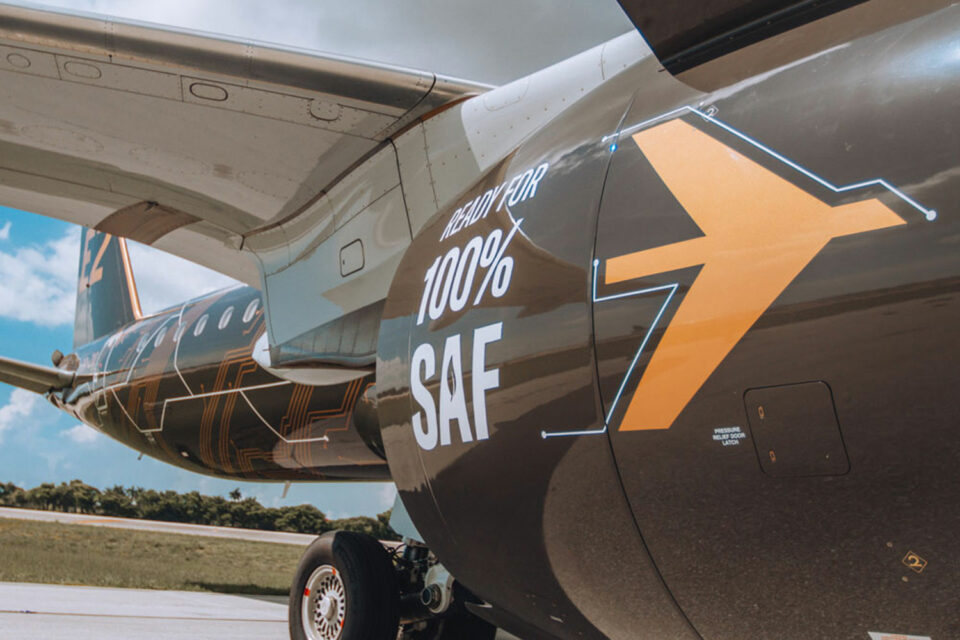
The SAF used on the E195-E2 in the Florida tests was 100% Hydroprocessed Esters and Fatty Acids Synthetic Paraffinic Kerosine (HEFA-SPK) acquired from World Energy.
“SAF is a core part of our sustainability road map, and we continue to work with industry partners and regulators to support the development of a drop-in standard for 100% SAF,” said Graham Webb, Director of Sustainability at Pratt & Whitney.
“This test proves that GTF engines can operate on any fuel, and that the E-Jets E2 family is ready for 100% SAF certification once the industry finalizes the standard for unblended SAF.”



